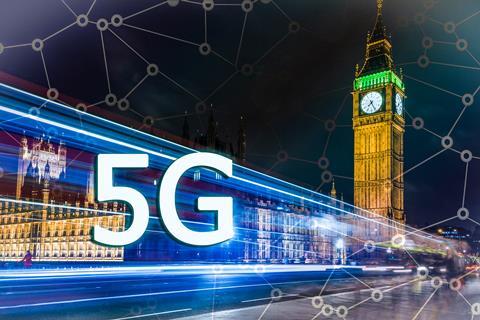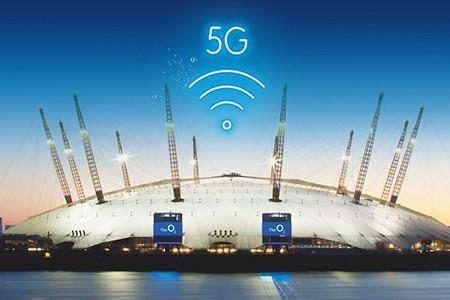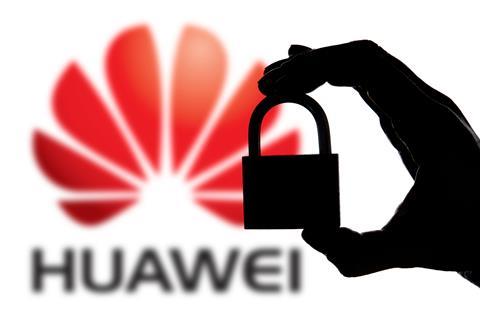All four UK operators will have launched 5G networks by the end of this year, but the UK government has yet to rule on Huawei’s role in 5G deployments.

The UK’s 5G rollouts are gathering pace, with all four of the UK’s major operators – and a couple of MVNOs – having either launched or unveiled their launch plans.
O2 UK became the final operator of the UK’s four mobile networks to unveil its 5G plans when the Telefonica-owned company announced its 5G switch-on for October. This follows EE and Vodafone – who both switched on their networks in recent months – and Three, which will launch its network in August.
O2 will roll out the next generation of mobile services in 20 towns and cities this year, aiming for a total of 50 UK cities by summer 2020. Three will launch in London initially, but plans to add a further 24 locations by the end of the year.
O2 UK CEO Mark Evans said: “5G is going to be a game changer for our country. Whether it’s for people or businesses, the power of this next-generation network is going to unlock a world of possibilities for our economy and society.
“As we switch on our network across the country, our intelligence-led roll-out prioritises the key areas in towns and cities first – the places where our customers need, and will use, 5G the most. We’re also giving our customers maximum flexibility with our industry-leading custom plans, letting people adopt 5G at a time that’s right for them.”
Perhaps more interesting is the pricing strategy each operator is taking. EE is charging a premium for its 5G tariffs, while Vodafone says there is no premium for 5G, but its range of tariffs come with speed limits depending on price, also known as throttling.
Three said it will not charge a premium, nor will it throttle its users’ connectivity. It will make the service available to both new and existing customers, though they will require a 5G-ready handset in order to use it.
O2 did not disclose pricing but said that its custom plans would offer “flexibility” and allow users on custom plans to move to 5G at any time.

And now, two mobile virtual network operators (MVNO) – operators who rely on the infrastructure of one of the big four mobile networks – have announced their 5G plans. BT, which owns EE and runs its BT Mobile offering on its network, will launch 5G by the end of 2019. Another broadcaster Sky also runs an MVNO, but it operates on O2’s infrastructure. Following O2’s announcement, Sky said it would switch on 5G in November 2019.
Content partnerships
So why is this important to the media and broadcast industries? Well, one of the key drivers behind 5G take up will be the increased speeds and reliability it offers, most notably for streaming.
The UK’s mobile operators already offer a number of deals and packages that include access to streaming services. Unsurprisingly, BT-owned EE has offers for BT Sport, but it also has what’s called a “Video Data Pass” under its Swappables scheme which gives zero-rated access to the likes of Netflix, BBC iPlayer, YouTube and Prime Video.
Vodafone also offers entertainment packages as part of its Red Entertainment bundle. This includes access to the likes of Now TV, Sky Sports, Prime Video and Spotify.
Three offers a package called Go Binge to all plans that include 12GB and above which gives unlimited access to the likes of Netflix, TV Player, Apple Music, Soundcloud, Deezer and Snapchat.
The question for the operators, and for broadcasters, is how quickly will 5G be adopted by end users? With 4G, which first launched in the UK in 2012, take up was initially slow, but once consumers began to see the benefits of much faster and more reliable connectivity, it became embedded in the mobile ecosystem, to the point that trying to stream on 3G seems archaic and is often very frustrating.
For 5G, the benefits will not just be limited to those who purchase a 5G phone. As more people transition on to 5G tariffs, it will free up congested 4G networks, meaning 4G users will also experience more reliable streaming services.
Perhaps another key takeaway from the recent 5G announcements is the importance of partnerships. Obviously, the broadcasters launching 5G are reliant on their network operators (although for BT, that isn’t so much of a problem given it owns EE). This means there will be close alignment in how those broadcasters approach 5G deployments.
As PP Foresight analyst Paolo Pescatore explains: “It is becoming harder for telcos to differentiate on connectivity beyond price alone. Sky armed with its innovative mobile features and breath of content is very well placed to compete head on. For now, from an overall services perspective it seems to be in pole position.
“However, it is largely dependent on O2’s network rollout. Moving forward you can foresee both companies becoming more closely aligned.”
Add into this the fact that UK telecoms operators have traditionally engaged in infrastructure sharing agreements. Three and EE had a mast sharing deal during 4G deployments, while Vodafone and O2 has a longstanding partnership called Cornerstone. After O2 announced its 5G plans, it said it would continue this relationship with Vodafone in order to speed up 5G rollouts.
The new deal focuses on an expansion of the current mobile site sharing agreement between the two companies, with reports from the Telegraph claiming the joint venture – or at least a stake in it – could be sold, with the JV valued at around £2 billion.
The Chinese problem
The announcements demonstrate that the UK is currently one of the countries leading the 5G marketplace – few other countries have seen all of their mobile network operators launch the next-gen service already.

But there are some challenges on the horizon – many of which stem from the role of Huawei in 5G rollouts.
Last week, the UK government was due to make a decision on whether to ban the Chinese manufacture’s equipment from being used in 5G networks, but this decision was kicked into the long grass.
Secretary of state for DCMS told the House of Commons that the “government is not yet in a position to decide what involvement Huawei should have in the provision of the UK’s 5G network.”
This coincided with the publication of a DCMS report looking at the telecoms industry supply chain, which found that more needs to be done to secure the UK’s mobile networks. The report pointed to a lack of diversity in the supply chain that could undermine security.
The UK has been under pressure from the US government to ban Huawei, amid allegations that the vendor could create backdoors into 5G networks to the benefit of China. Huawei denies this vehemently.
Huawei equipment is, of course, already deeply embedded into the UK’s telecoms infrastructure – no surprise for the market leader. A third of Vodafone’s radio network relies on Huawei, according to the Register. It is also involved in EE’s deployment, though the BT-owned operator ruled out including Huawei kit in its core network. Huawei has also reportedly won contracts with Three and O2.
According to consultancy Assembly, restrictions on Huawei could delay 5G deployments by up to two-years. This could cost the UK as much as £6.8 billion, whilst also jeopardising its position as a world leader in the next generation of connectivity.
Globally, the company has signed contracts to help build 50 5G networks, totalling around 150,000 base stations – so the problem isn’t one for the UK alone. But what is clear is that for the UK, 5G is here – the question for the operators and the British government is whether they are willing to risk that to appease Donald Trump.
























No comments yet